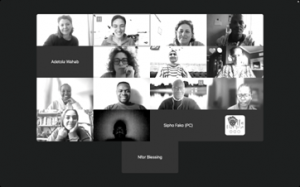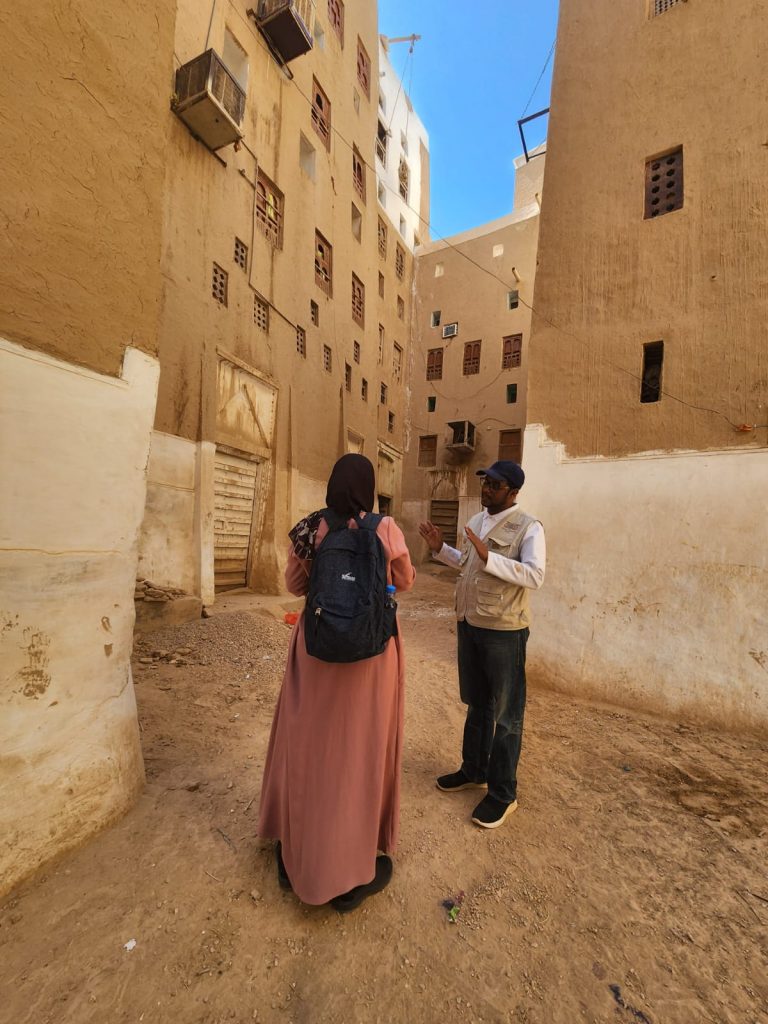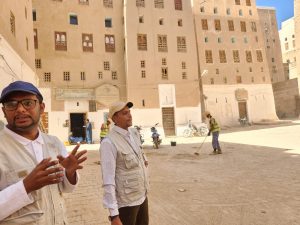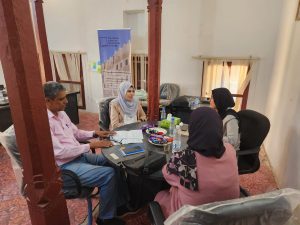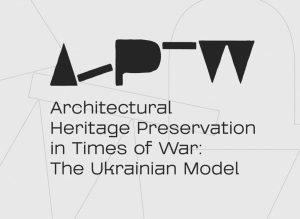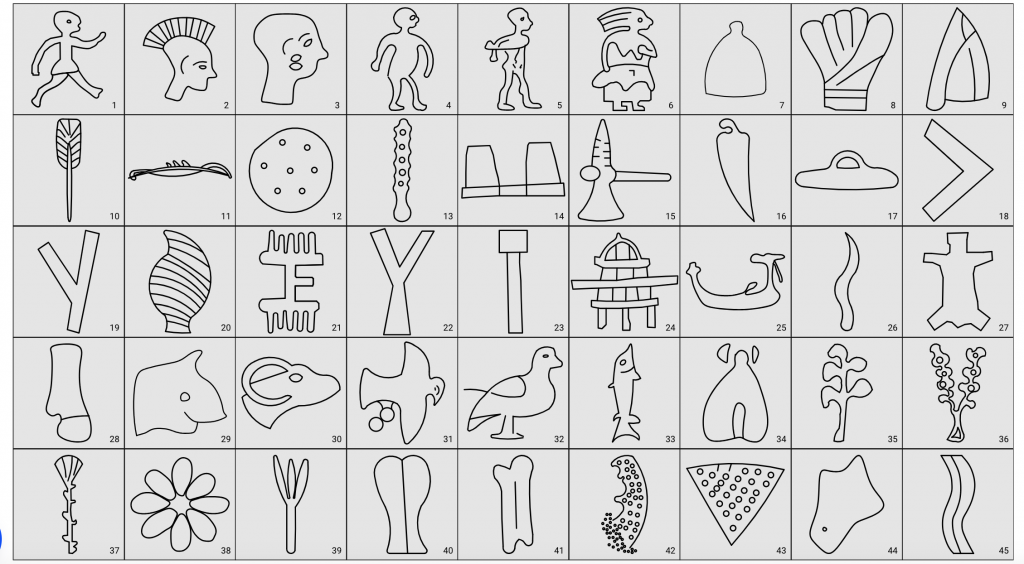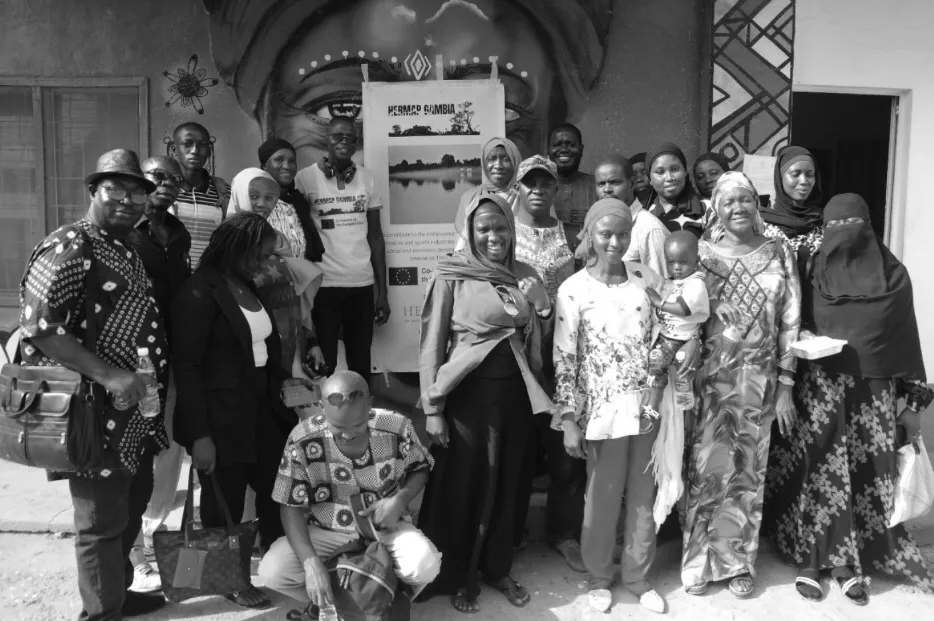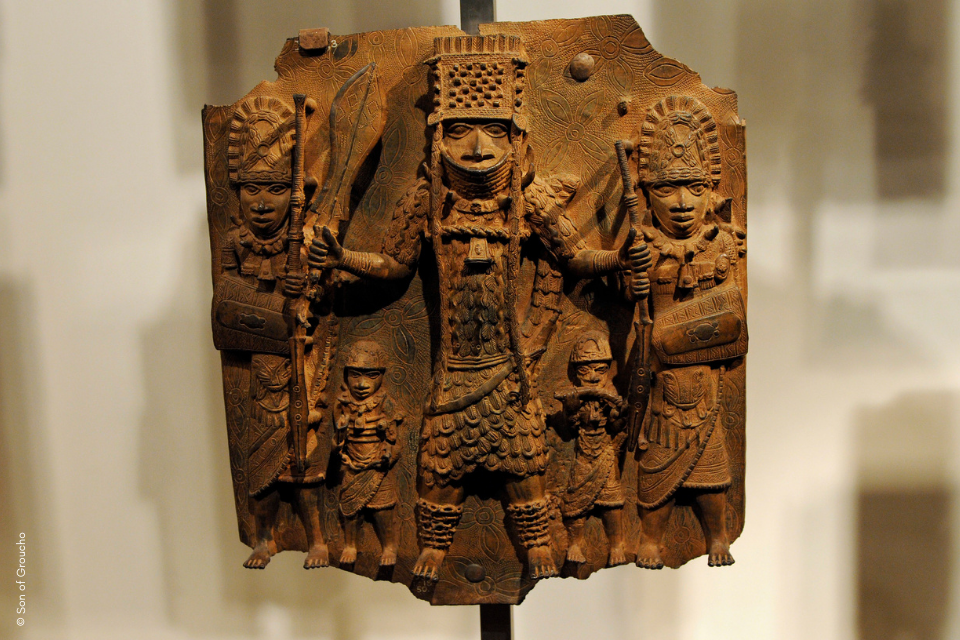
* By Ahmad Mohammed, PhD Researcher, Department of Archaeology, Durham University
Digital repatriation, referring refers to the return of cultural heritage in digital form and, has emerged as a pivotal innovation within digital humanities and heritage studies over the past decade (Poske 2024). Traditionally rooted in anthropological practices, digital repatriation has evolved to encompass diverse modes of reconnecting communities with ancestral heritage that has been displaced through the removal of cultural objects, utilizing photographs, audio recordings, 3D scans, virtual reality experiences, and online databases. This practice is fundamentally reshaping the landscape of cultural heritage management, museum curation, and archival practices by challenging traditional notions of ownership, stewardship, and access.
At its core, digital repatriation seeks to address the historical injustices that resulted in the displacement and appropriation of cultural objects during periods of colonialism, conflict, and globalization. Through digital surrogates, source communities are afforded renewed access to their material culture, linguistic traditions, and spiritual practices, often enabling revitalization efforts that strengthen cultural identity and continuity. Advances in digital technology offer transformative possibilities for democratizing access, fostering intercultural dialogue, and supporting community-driven heritage management.
However, digital repatriation is not without profound ethical, legal, and political dilemmas. Critics caution that without genuine power shifts toward originating communities, digital repatriation risks reinforcing colonial hierarchies under the veneer of technological progress (Lixinski 2020; Vapnarsky and Noûus 2021). The creation and circulation of digital surrogates, while offering symbolic returns, may simultaneously allow institutions to retain control over original artifacts, thus perpetuating structural inequalities.
Moreover, issues surrounding intellectual property rights, ethical data management, cultural sensitivity, and digital divides further complicate the landscape. Who controls the digital replicas? Who decides how they are accessed, interpreted, and shared? Can digital copies ever replace the spiritual and material significance of original artifacts? These questions remain at the heart of ongoing scholarly debates.
Understanding digital repatriation, therefore, requires a holistic exploration of its transformative potential, systemic risks, and the critical frameworks necessary for its ethical realization. This study examines both the promises and paradoxes of digital repatriation, emphasizing that truly decolonial digital practices must center the sovereignty, authority, and cultural values of source communities at every stage of the process.
Opportunities and Innovations
Digital repatriation initiatives have opened unprecedented opportunities for re-establishing connections between communities and their dispersed cultural heritage. The ability to access, interact with, and reinterpret heritage materials through digital means has empowered communities to reclaim narratives historically marginalized or misrepresented in institutional settings. Virtual museums, augmented reality exhibitions, and open-access repositories have emerged as platforms that democratize heritage access, facilitating intercultural understanding and knowledge sharing (Wikipedia 2023; Vapnarsky and Noûus 2021).
Moreover, community-led initiatives such as Princeton University’s “Naming and Claiming” project have demonstrated how Indigenous communities can actively participate in reauthoring the digital representation of their heritage (Young 2018). Platforms like Mukurtu offer customizable tools that allow for the imposition of cultural protocols, ensuring that sensitive materials are managed in accordance with traditional knowledge systems (Krupa and Grimm 2021).
Emerging frameworks emphasizing Indigenous data sovereignty (Owan et al. 2023) further enhance these opportunities, providing communities with the mechanisms to govern their digital heritage autonomously. Blockchain technologies and NFTs have also been explored as innovative methods for asserting Indigenous rights and “activating refusal,” allowing communities to control the circulation of their digital heritage and challenge exploitative practices (Feld 2023).
Importantly, projects like Sípnuuk, developed by the Karuk Tribe, exemplify how Indigenous-controlled digital archives can become vital spaces for cultural preservation, education, and intergenerational knowledge transfer (Hillman et al. 2017).
Challenges and Critiques
Despite the promising potential of digital repatriation, significant challenges persist that threaten to undermine its transformative aspirations. A major concern is the risk of “virtual restitution” replacing demands for the physical return of cultural artifacts. Scholars argue that offering digital surrogates without relinquishing ownership of original items can serve to placate repatriation claims without addressing the deeper injustices of colonial dispossession (Poske 2024; Open GLAM 2021).
Furthermore, institutional control over digital surrogates remains pervasive. Digitization often occurs within frameworks that prioritize institutional narratives and archival standards, thereby marginalizing Indigenous epistemologies and cultural protocols (Allahyari 2016; Vapnarsky and Noûus 2021). This dynamic perpetuates “digital colonialism,” wherein Western institutions retain authority over how digitized heritage is categorized, accessed, and interpreted.
The ethical risks associated with the digitization of sacred and sensitive materials also present critical challenges. Without robust community consultation and consent, digital repatriation can result in the unintentional exposure of knowledge that communities deem private or sacred (Leditschke et al. 2024).
Legal ambiguities surrounding ownership and copyright further complicate digital repatriation efforts. Institutions often assert intellectual property rights over digital representations, effectively creating new forms of dispossession and reinforcing “intellectual property imperialism” (Oruç 2023).
Moreover, digital divides continue to hinder equitable participation in digital repatriation initiatives. Many communities face barriers related to infrastructure, technological capacity, and digital literacy, limiting their ability to access, manage, and benefit from digital heritage (Shepardson 2023; Smith and Ristya 2023).
Ownership, Control, Ethical Governance, and Justice
The success of digital repatriation depends fundamentally on reconceptualizing ownership, control, and ethical governance. True digital repatriation must prioritize the sovereignty of source communities over their digital and physical heritage. This requires dismantling traditional hierarchies of knowledge production and curatorship that have historically marginalized Indigenous voices.
Frameworks such as Traditional Knowledge Labels (Local Contexts 2021) offer practical mechanisms for communities to assert cultural authority over digital content, specifying conditions of access, attribution, and usage. Community-led governance models based on principles of free, prior, and informed consent, reciprocal benefit, and cultural sensitivity are essential for ensuring that digital repatriation initiatives respect Indigenous legal and ethical systems (Owan et al. 2023).
Innovative approaches leveraging blockchain and NFTs provide additional tools for Indigenous communities to control the circulation of their digital heritage and resist unauthorized appropriation (Feld 2023). However, technological solutions must be embedded within broader frameworks of ethical collaboration and decolonial practice to avoid replicating existing inequities.
Justice in the context of digital repatriation demands more than technological fixes; it requires meaningful restitution, recognition of historical harms, and the establishment of equitable partnerships between institutions and source communities. As Sarr and Savoy (2018) argue, digital repatriation should complement, not replace, physical returns and broader decolonization efforts.
Ultimately, digital repatriation can serve as a powerful catalyst for restorative justice, cultural revitalization, and global solidarity. However, achieving these goals necessitates a sustained commitment to centering community agency, respecting cultural protocols, and challenging the legacies of colonialism embedded within heritage institutions and digital infrastructures.
Conclusion
Digital repatriation stands at the intersection of innovation and restitution, offering unprecedented opportunities to bridge historical divides and empower communities historically marginalized in cultural heritage discourses. As digital technologies increasingly permeate every aspect of cultural management, digital repatriation offers a means for Indigenous and source communities to reengage with dispersed heritage, revitalize endangered traditions, and assert cultural sovereignty in new and dynamic ways.
Nevertheless, digital repatriation is fraught with complexity. Access to digitized heritage, while important, cannot substitute for genuine restitution of physical objects nor can it rectify the profound harms caused by centuries of cultural dispossession. Without structural transformations in ownership, control, and governance, digital initiatives risk becoming superficial gestures that maintain institutional dominance under the guise of innovation.
True decolonization demands more than the proliferation of digital surrogates; it requires reimagining the ethical frameworks that underpin cultural heritage practices. Institutions must move beyond extractive models of stewardship toward equitable, consent-based collaborations that center the epistemologies, rights, and aspirations of source communities. This includes embracing Indigenous frameworks of knowledge governance, recognizing cultural protocols surrounding access and use, and committing to processes of physical restitution wherever possible.
The future of digital repatriation lies in forging partnerships grounded in trust, reciprocity, and mutual respect. Technology, when harnessed ethically, can serve as a powerful tool for restorative justice, cultural healing, and global solidarity. However, it must always be deployed in ways that prioritize community agency, ensure cultural continuity, and challenge the legacies of colonialism rather than perpetuating them.
As digital heritage practices continue to evolve, it is imperative that scholars, heritage professionals, and policymakers remain critically engaged, ensuring that digital repatriation becomes a catalyst for genuine empowerment and not merely a digital reflection of historical inequities. By centering the sovereignty and visions of source communities, digital repatriation can fulfill its transformative potential and contribute meaningfully to a more just and equitable heritage future.
References
- Allahyari, M. (2016). Digital Colonialism [Lecture and interviews]. Available at: https://morehshin.com/digital-colonialism/
- Feld, L. (2023). Activating Refusal: Exploring NFTs to Disrupt Colonial Heritage Systems. International Journal of Heritage Studies, 30(1), 103–114. https://doi.org/10.1080/13527258.2023.2277794
- Hillman, L.J., Hillman, L., Harling, A., Talley, B., & McLaughlin, A. (2017). Building Sípnuuk: A Digital Library, Archives, and Museum for Indigenous Peoples. Collection Management, 42(3–4), 294–316. http://dx.doi.org/10.1080/01462679.2017.1331870
- Krupa, K.L. & Grimm, K.T. (2021). Digital Repatriation as a Decolonizing Practice in the Archaeological Archive. Across the Disciplines, 18(1/2). https://wac.colostate.edu/docs/atd/volume18/Krupa,Grimm.pdf
- Leditschke, A., Nichols, J., Farrow, K., & Brown, Q. (2024). The Ethics and Cultural Sensitivities of Data Management in Indigenous Cultural Heritage. Advances in Librarianship, 23–39. https://doi.org/10.1108/S0065-283020240000054003
- Local Contexts. (2021). Traditional Knowledge Labels. [Online] Available at: https://localcontexts.org/tk-labels/
- Open GLAM. (2021). Decolonization and Indigenization. Open GLAM PubPub Platform. https://openglam.pubpub.org/pub/decolonization
- Oruç, P. (2023). Who Holds Copyright in 3D Copies of Repatriated Cultural Heritage? Kluwer Copyright Blog. https://copyrightblog.kluweriplaw.com/2023/01/05/who-holds-copyright-in-3d-copies-of-repatriated-cultural-heritage/
- Owan, V.J., Ogar, J.O., et al. (2023). Indigenous Research and Data Management in Electronic Environments. In Advances in Information Quality and Management, pp. 342–362. https://doi.org/10.4018/978-1-6684-7024-4.ch018
- Poske, C. (2024). Digital Repatriation of Cultural Heritage. In The Palgrave Encyclopedia of Cultural Heritage and Conflict. https://doi.org/10.1007/978-3-030-67932-6_130-1
- Sarr, F. & Savoy, B. (2018). Report on the Restitution of African Cultural Heritage: Toward a New Relational Ethics. https://www.about-africa.de/images/sonstiges/2018/sarr_savoy_en.pdf
- Shepardson, Britton L., et al. “Terevaka Archaeological Outreach (TAO) 2019 Field Report: Creating Digital Access to Cultural Heritage.” Rapa Nui Journal 32, no. 1 (2019): 118-134. https://dx.doi.org/10.1353/rnj.2019.0003.
- Smith, E.C.H. & Ristya, R. (2023). Protection and Repatriation of Cultural Heritage: Digital Access and Indigenous Rights. https://doi.org/10.4467/2450050XSNR.22.025.17038
- Vapnarsky, V. & Noûus, C. (2021). Digital Repatriation, Amerindian Reappropriations. Journal de la Société des Américanistes, 107(1), 303–315. https://doi.org/10.4000/jsa.19794
- Wikipedia. (2023). Digital Repatriation. https://en.wikipedia.org/wiki/Digital_repatriation
- Young, I. (2018). Naming and Claiming: Indigenous Language in Digital Repatriation. MW18: Museums and the Web 2018. https://mw18.mwconf.org/proposal/naming-and-claiming-indigenous-language-in-digital-repatriation/index.html


